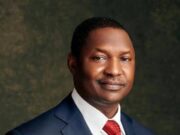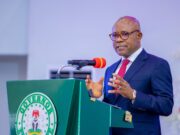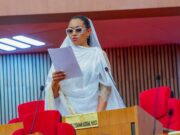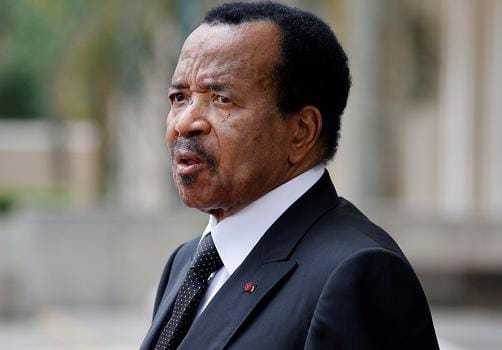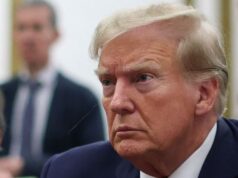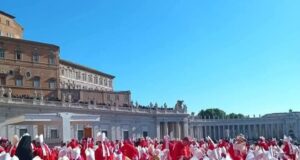Cameroon’s President, Paul Biya, the world’s oldest head of state, celebrates his 92nd birthday on Thursday, having led the country for more than 40 years.
However, he remains silent on whether he will seek another term in this year’s election.
Despite speculation, many – including the fractured opposition—believe that the leader, who first took office in 1982, will run for an eighth term in the October vote.
Following the highly contested 2018 election, Biya further tightened his grip on power, with dissent met with repression, arrests, and prison terms, according to human rights activists.
“The president has already said that he will make known whether or not he is a candidate in this election at the appropriate time,” government spokesman and Communication Minister Rene Emmanuel Sadi stated last month.
Biya has not designated a successor, and discussing who might replace him remains a taboo subject.
“In the current context, even if he were lying on a stretcher, candidate Biya will be re-elected,” former minister Garga Haman Adji said in an interview with Mutations in July.
Concerns over Biya’s health intensified last year when he vanished from public view for several weeks.
Persistent rumors led authorities to clarify that he was in Switzerland, where he frequently stays at luxury resorts.
Subsequently, the government formally prohibited local media from discussing his health status.
Since returning to Cameroon on October 21, Biya has made only a handful of public appearances, including official photos from the presidential palace, a regional summit in Yaoundé, and televised speeches.
As in past election years, various voices have urged him to seek another term.
“My determination to serve you remains intact and is strengthened on a daily basis, given the scale of the challenges we face,” Biya stated in his end-of-year address, citing “massive support.”
In January, traditional leaders pledged their “total and unwavering” backing. Some of his supporters on Facebook insist Biya remains “still strong” and could serve two more terms.
International human rights organizations frequently accuse Biya’s administration of repressing opposition.
His seventh-term victory in 2018 was marked by widespread allegations of fraud, sparking political crackdowns.
“In recent times, the anxieties of the vast majority of Cameroonians have increasingly transformed into cries of distress in the face of the misery they are experiencing and the degradation of our beautiful country,” Catholic bishops said in a recent conference.
They also condemned “corruption,” unemployment, and widespread violence affecting parts of the country.
Since 2009, Cameroon’s far north has faced attacks from Boko Haram and the Islamic State West Africa Province (ISWAP).
Meanwhile, since 2016, a deadly conflict has raged in the country’s two English-speaking regions between armed separatist groups and government forces.
In his last speech, Biya praised “the tremendous progress seen in recent years.”
Speaking in a hoarse voice, he referenced “the next electoral deadline” and urged young people “not to listen to the sirens of chaos that some irresponsible people are sounding.”
Since January 2019, the government has not undergone a reshuffle, and four ministerial positions remain vacant following the deaths of their occupants.
Additionally, over a dozen lawmakers and five senators who have passed away have yet to be replaced.


